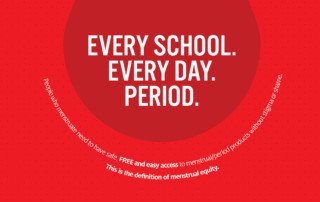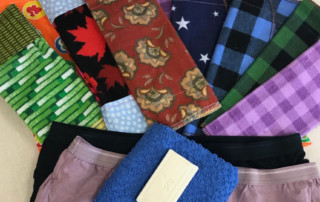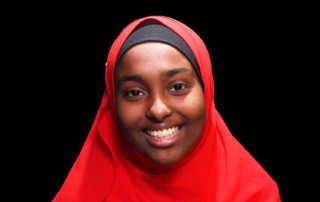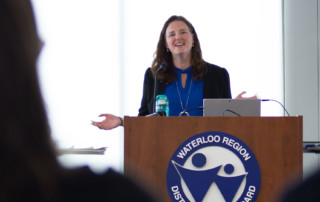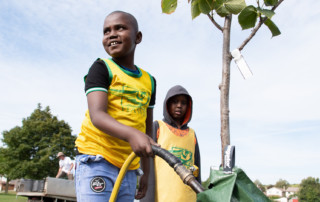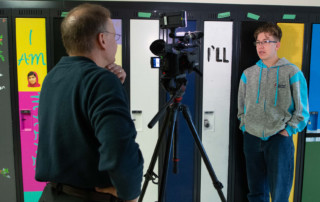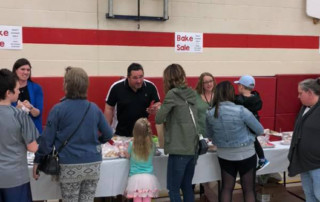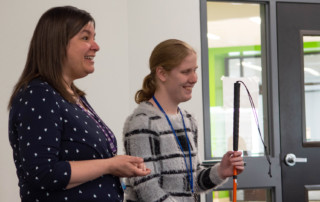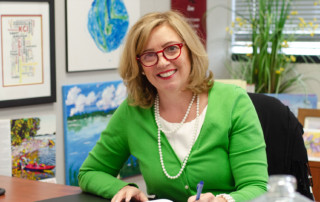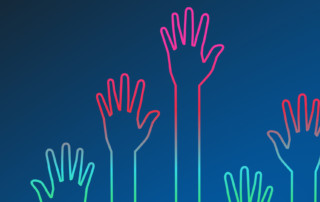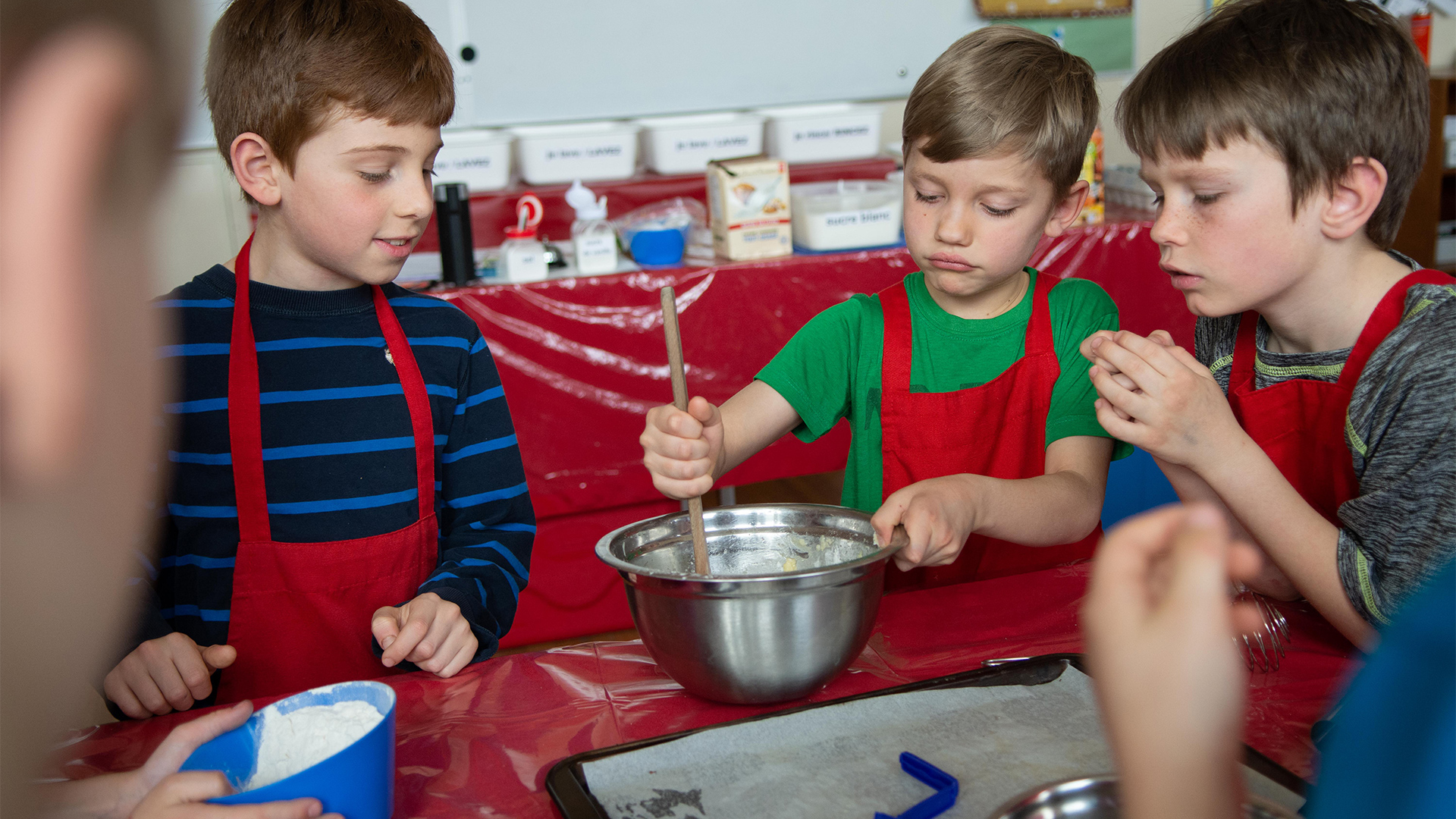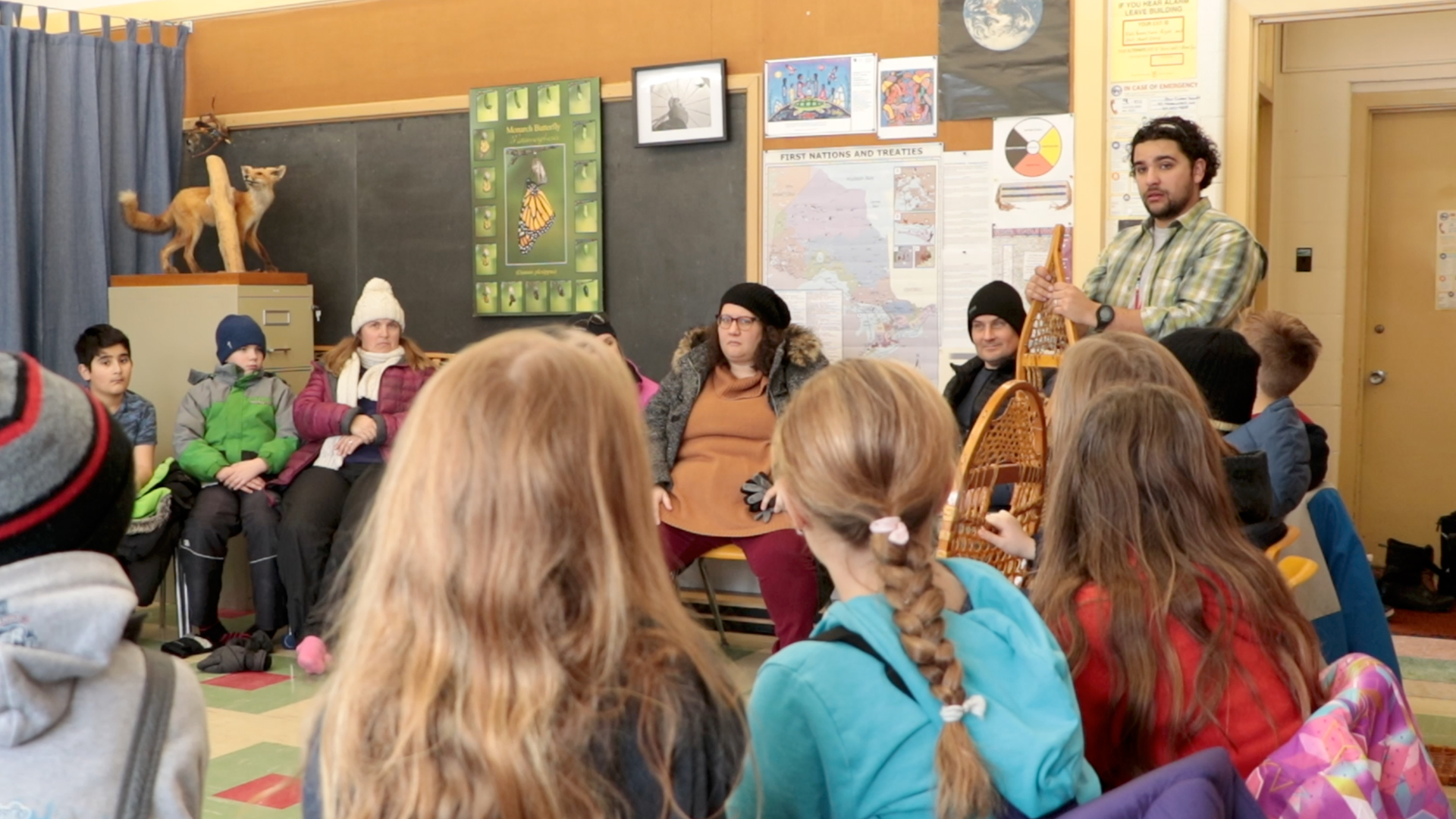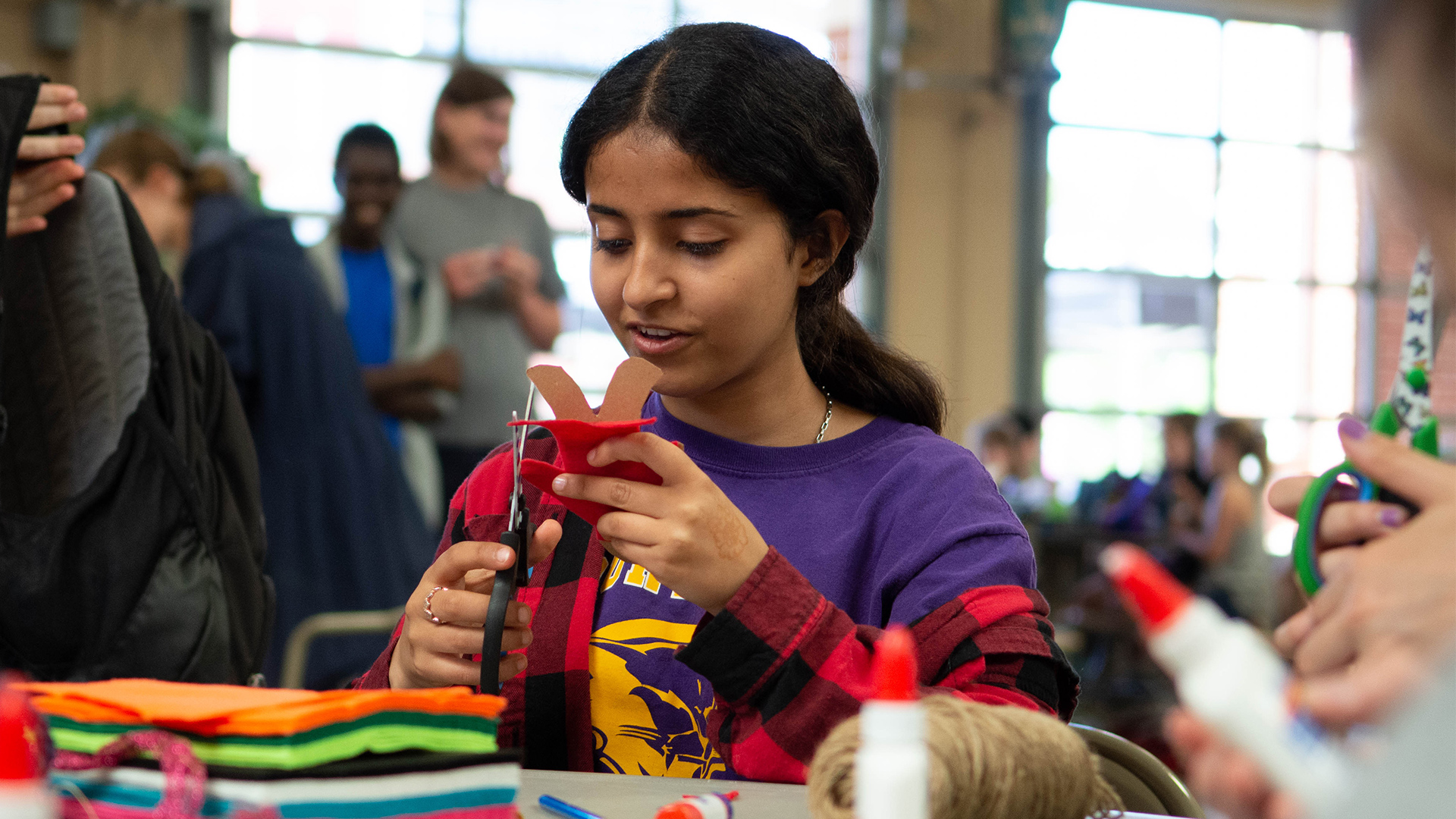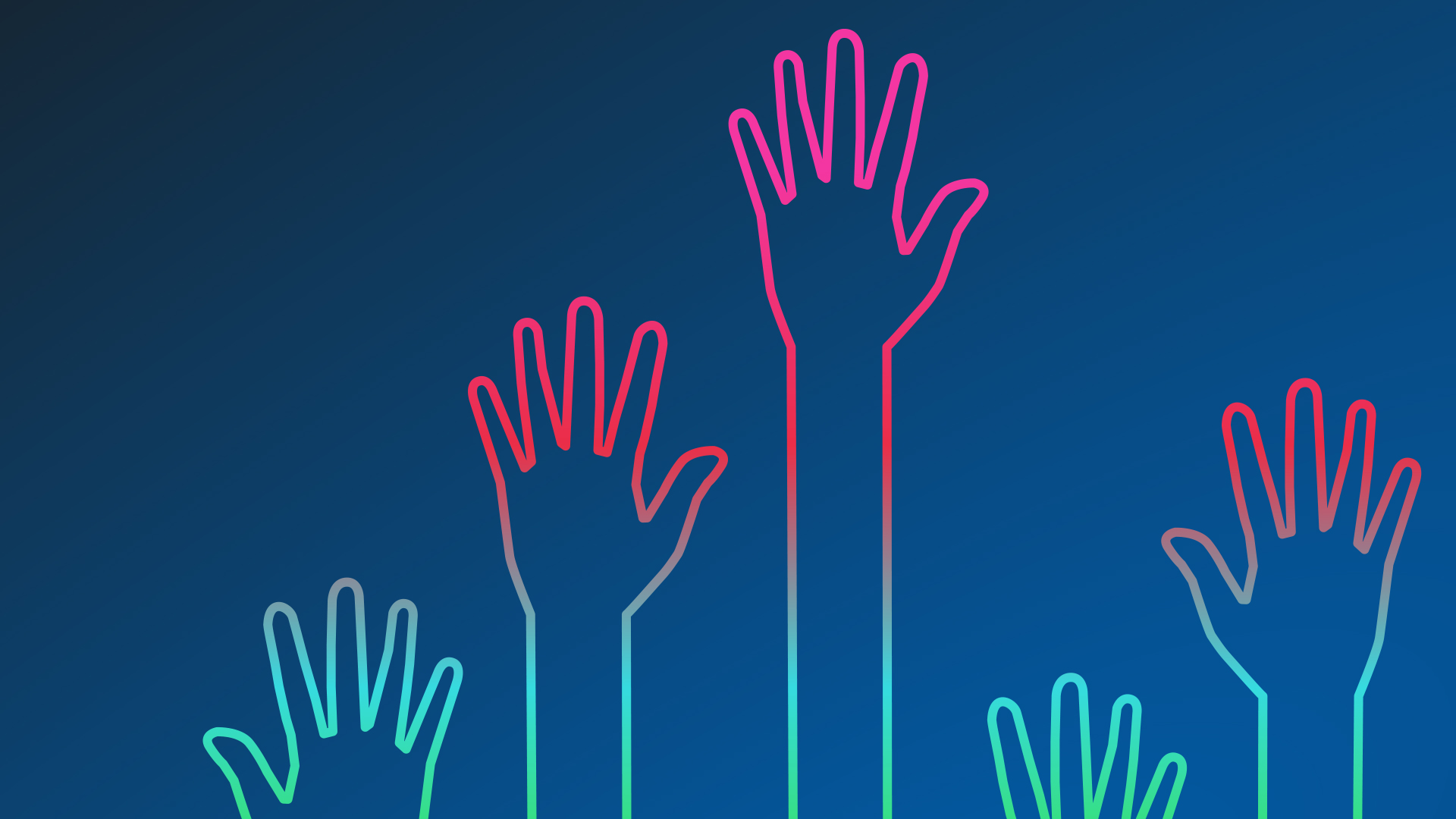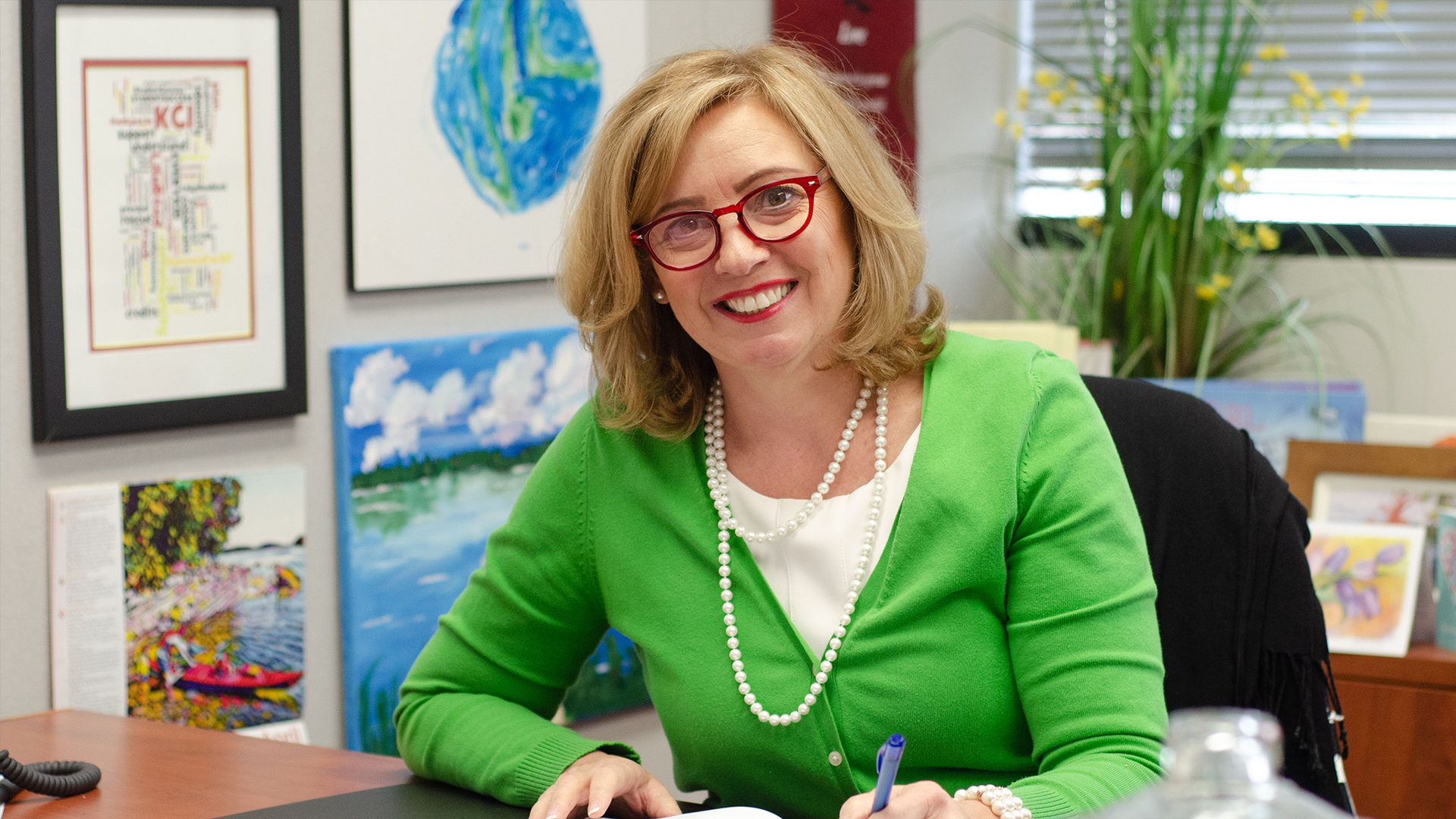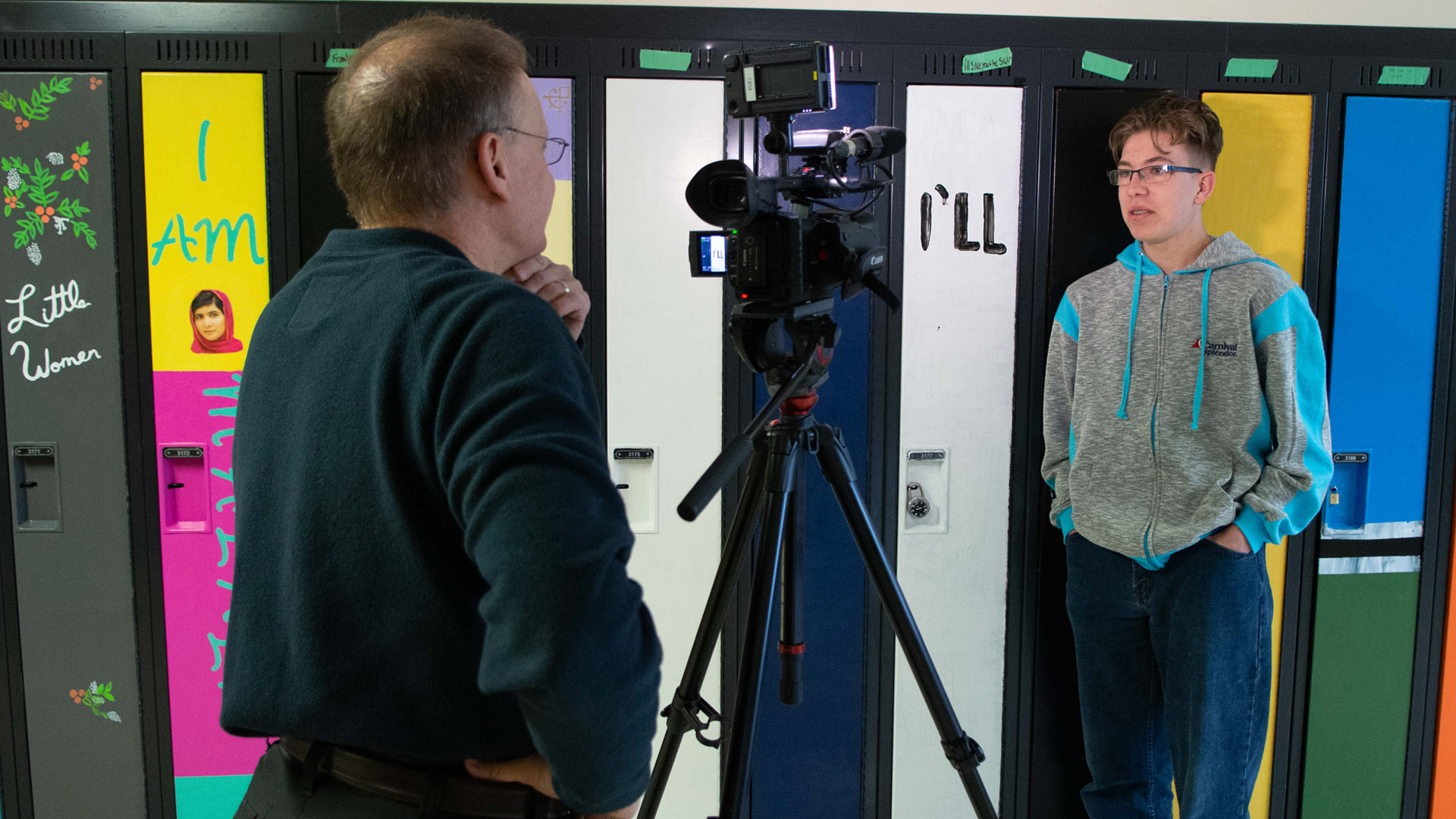Our students are first – each and every one
Our students experience a sense of belonging in a caring and inclusive learning environment that addresses their well-being.
We are committed to honouring and respecting all of our students by creating an environment where they feel included, valued and treated with dignity. School-based safe caring and inclusive school teams support the promotion of a positive school climate within our schools and community.
Beginning in September 2019, we offered free access to period products in every school and alternative education site. Products were made available for students in the accessible, all-gender bathrooms, eliminating barriers and stigma associated with asking for products.
Our students pursue individual learning pathways that reflect their interests, develop skills for the future and inspire global citizenship.
We believe that schools and staff have an important role to play in innovating the future through the way we are educating our students today. The future is full of new possibilities and advancements, and we want to ensure that our students are prepared for the realities of what the workforce and our world may look like after they graduate. We want to support students in developing critical thinking and independent learning skills that prepare them for their futures.
The Days for Girls club at Kitchener-Waterloo Collegiate Institute (KCI) are making their mark as global citizens by cutting and sewing fabric into reusable menstrual pads to be provided to women and girls in need in Shirati, Tanzania. Days for Girls is an international organization that educates girls about menstrual health and hygiene and provides sustainable solutions to help women and girls live their lives with dignity and break the cycle of poverty.
“Having a period, for most of us, is simple to handle when the time comes. But for these girls, it prevents them from going to school and learning, so it’s important that we do this simple task to help them,” said Jenna, a grade 11 student.
Our students succeed in reaching their potiential and graduating for WRDSB High Schools and Programs.
Through the introduction of new technology, special programming and customized support, we build students’ confidence as they face the future. It is important to us that every student experiences a caring learning environment that encourages their success. When a student’s optimal learning potential is affected by behavioural, communicative, intellectual or physical exceptionalities, special education support is provided.
In 2019, we wanted to hear from our graduating students directly. Our Communications Department set up a video booth at each of our 16 secondary schools, and offered all graduating students a chance to tell their story, and say thanks to those who helped to prepare them for their own pathway to success. The resulting videos showcased the integral role our staff and educators play in helping every student reach the finish line and prepare for their next steps.
Our culture of innovation builds students’ confidence and success as they face the future
Our learning environments include all students and their diverse perspectives and ideas
We celebrate the contributions from our diverse community of staff and students. Supporting these perspectives in our schools is an important part of student achievement and well-being.
Our Equity and Inclusion Policy underscores our commitment to providing inclusive programs, curriculum and services. We strive to create an environment for our students and staff that values independence, dignity, inclusiveness and respect. We are continually making improvements to remove barriers in our schools so that all students and staff experience a sense of belonging.
This thinking was exemplified by the work of Niki Kazemzadeh, an elementary music teacher at Millen Woods Public School. While pursuing her Masters of Arts degree in Community Music at Wilfrid Laurier University (WLU), she offered a number of professional development sessions for music educators in the WRDSB, focused on the integral role music educators play in creating inclusive learning spaces, striving to decolonize their classrooms and the opportunity they have to build strong relationships with students throughout their academic career.
“We have a really important job to do,” said Kazemzadeh. “All educators, all people, need to take time to learn, unlearn and challenge what they think they know.”
Our students, staff and community are supported by creative and collaborative problem-solving.
Whether it is high tech innovation, or social innovation that is changing our society and communities to become better places to live, work and raise a family – we know our purpose as a public school district is to inspire our students to see the potential in themselves to contribute in a meaningful way to their community.
Students and staff at Howard Robertson Public School in Kitchener put this thinking into action, with their project that planted ten trees in Kinzie Park in partnership with Love My Hood and the City of Kitchener. The grade 5 and 6 students will be caring for the trees over the next two years, and are learning how they can make their community a better place, while also helping the environment.
“We’re just planting trees, having fun, helping the community,” said Ryan, a student at Howard Robertson. “It’s a good feeling to help the community.”
Our school communities are encouraged to learn by exploring new and innovative projects, ideas and approaches.
From Kindergarten through to Grade 12, we are innovating the way we teach and learn, so that our students can become the next generation of innovators. We foster a culture where new ideas are welcomed and considered. We want to build our student’s capacity to think critically and problem-solve creatively.
Students at Southwood Secondary School in Cambridge brought the bookshelf to the hallway. Members of the Paint a Book Club painted lockers to look like the spines of books to inspire their peers to pick up a book and bring a splash of colour to the hallways.
“Over the years I have created a learning environment that celebrates literature…so the locker project was a natural extension from that,” said English teacher Kathryn McPherson, who led the project.
This spirit of innovation continued to Ed Piva’s Grade 8 class at Linwood Public School who learned about building their own paths to reconciliation by studying the journey Chanie Wenjack took 50 years ago. Piva’s wood carvings, inspired by Gord Downie and the story of Wenjack, are featured at the Legacy Space at Rogers headquarters in Toronto. It’s dedicated to raising awareness and understanding of Indigenous art, history and culture with employees and community members.
“What I do as an educator in school and outside of school should be the same,” he said. “That’s what an educator does. They lead the way.”
Our staff, families and caregivers are partners in every student’s learning journey
Our families and caregivers are supported in creating the best possible outcomes for our students
We know that our families are partners with us in every student’s learning journey, and encourage all to get involved in bettering their school community. From Parent Involvement Committee (PIC), to the Waterloo Region Assembly of Public School Councils (WRAPSC), to your own school council, there are a number of ways for our families to help shape their school.
Our school councils’ enrich their school communities in a variety of innovative ways. From hosting family science nights and wellness fairs, to greening projects that bring more trees, and natural shade, to playgrounds. The work they do has a clear impact on the communities they serve. In total, WRDSB school councils raised more than $900,000 to support their students and school.
Our staff is equipped with the skills and resources to support every child in their learning journey.
By embracing an attitude of care and support, we seek to understand and meet the needs of those who we serve. Through reaching out and listening to our community, families and educators, we build collaborative relationships to achieve common goals. Our staff is committed to working collaboratively to advance student achievement in the classroom.
In this spirit, our staff took part in sighted guide training at the WRDSB Education Centre in May. About 40 staff members joined Alyssa Clelland, a blind student at W Ross Macdonald School on a co-op placement at the Education Centre, and Jeanette Dudley, an orientation and mobility instructor, from Vision Loss Rehabilitation Ontario, to learn how to act as a guide for a person who is blind.
“I’m glad you guys came because it means a lot to me and a lot of other people that we’ve not met yet,” Clelland said with a smile. “It’s good to have this skill because you never know when you’ll need it.”
Our staff is supported in their wellness as they promote and model wellness for our students
Every student is entitled to beneficial learning environments. We know that students succeed when they feel safe and supported in school. A healthy school climate leads to greater student success. That is why we embrace an attitude of care and support, especially when it comes to our students and staff.
We know that in order to provide support and care for our students, our staff needs to feel supported and cared for, as well. In April 2019, we launched the WRDSB Workforce Census in order to gain detailed insight as to the cultural, social and demographic makeup of our workforce. This is part of our ongoing commitment to equity and inclusion and the results have allowed us to hear and learn a great deal.
In total, 3844 employees participated in the census, representing a 40% response rate. We have identified actions and strategies going forward that will help us to better meet the needs of our employees and our students.

